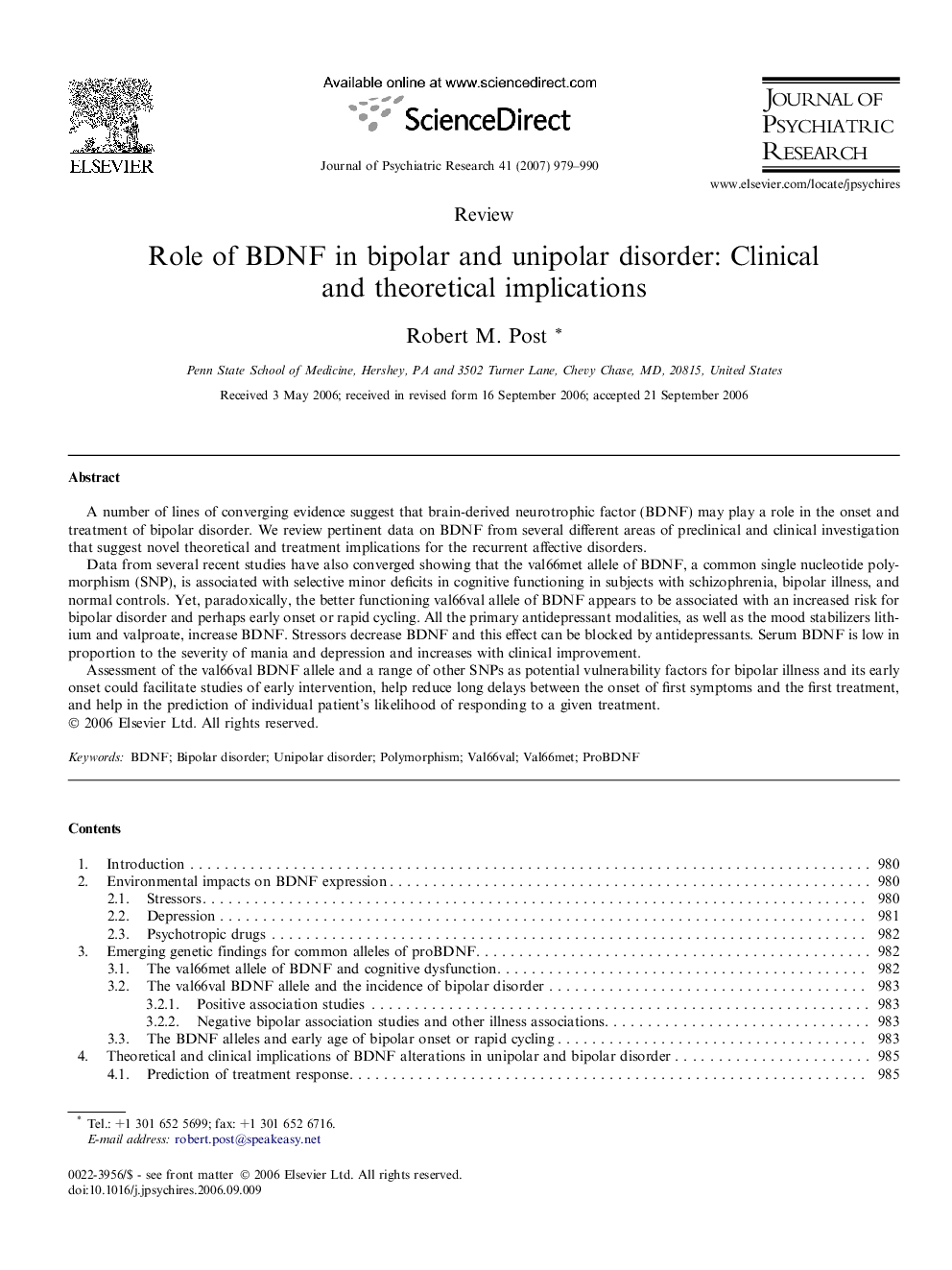| Article ID | Journal | Published Year | Pages | File Type |
|---|---|---|---|---|
| 327223 | Journal of Psychiatric Research | 2007 | 12 Pages |
A number of lines of converging evidence suggest that brain-derived neurotrophic factor (BDNF) may play a role in the onset and treatment of bipolar disorder. We review pertinent data on BDNF from several different areas of preclinical and clinical investigation that suggest novel theoretical and treatment implications for the recurrent affective disorders.Data from several recent studies have also converged showing that the val66met allele of BDNF, a common single nucleotide polymorphism (SNP), is associated with selective minor deficits in cognitive functioning in subjects with schizophrenia, bipolar illness, and normal controls. Yet, paradoxically, the better functioning val66val allele of BDNF appears to be associated with an increased risk for bipolar disorder and perhaps early onset or rapid cycling. All the primary antidepressant modalities, as well as the mood stabilizers lithium and valproate, increase BDNF. Stressors decrease BDNF and this effect can be blocked by antidepressants. Serum BDNF is low in proportion to the severity of mania and depression and increases with clinical improvement.Assessment of the val66val BDNF allele and a range of other SNPs as potential vulnerability factors for bipolar illness and its early onset could facilitate studies of early intervention, help reduce long delays between the onset of first symptoms and the first treatment, and help in the prediction of individual patient’s likelihood of responding to a given treatment.
